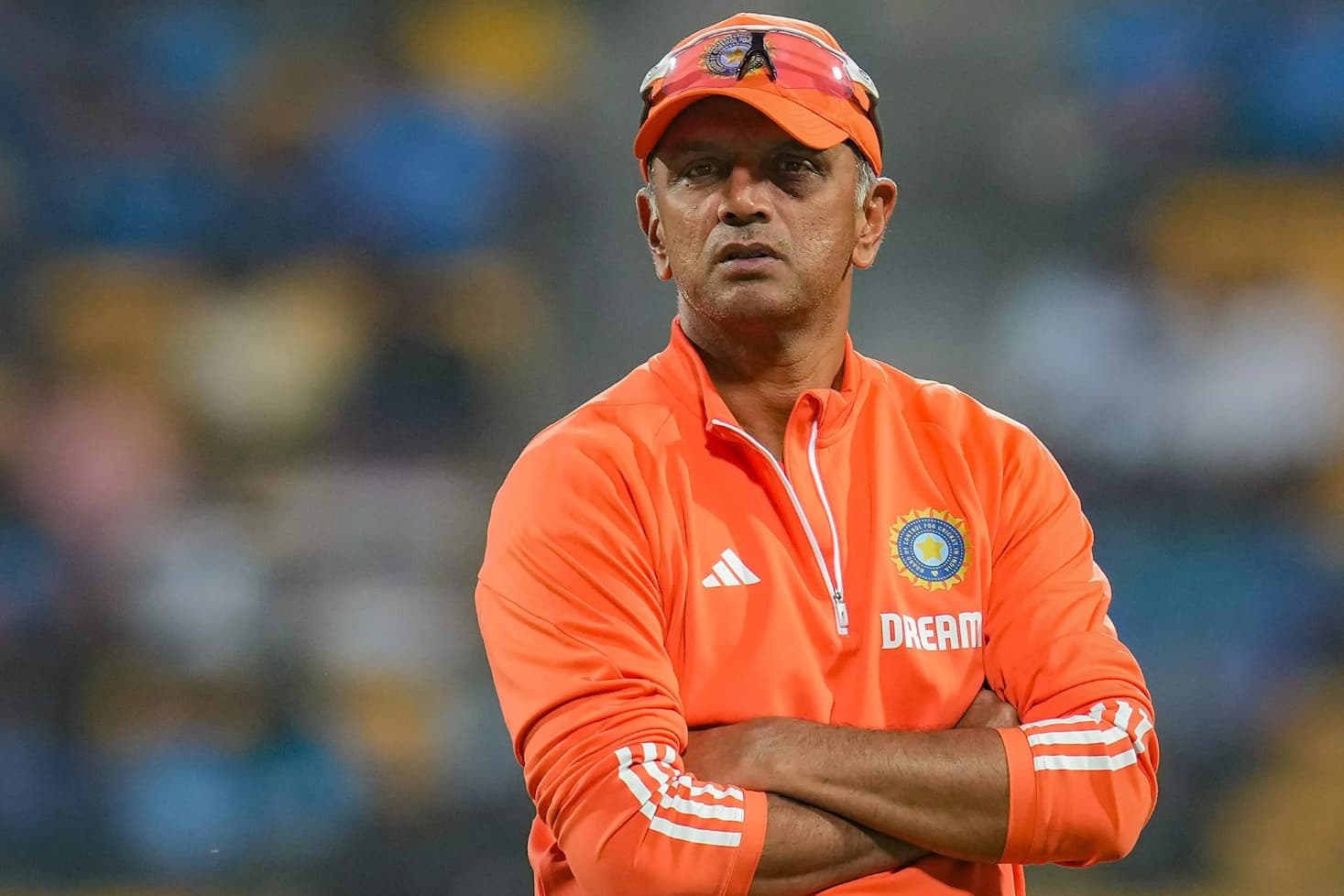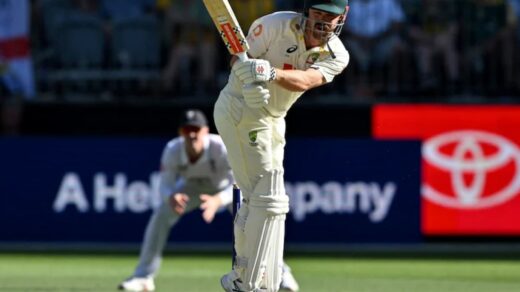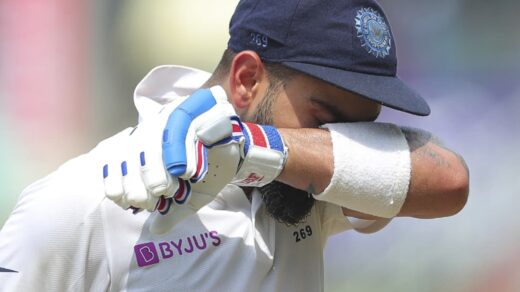The story of Indian cricket’s rise from underdogs to world champions isn’t just about talented players—it’s equally about the minds that shaped them from the sidelines.
Coaching in Indian cricket began formally in 1971, when the Board of Control for Cricket in India (BCCI) recognized that professional guidance was essential for competing with established cricketing nations.
What started as simple team management evolved into sophisticated systems involving psychological conditioning, data analysis, and specialized skill development across five transformative decades.
From Keki Tarapore’s pioneering management in 1971 to Gautam Gambhir’s aggressive modern approach in 2025, India National Cricket Team Coaches have brought diverse philosophies that reflected their eras.
The 1970s and 1980s saw Indian legends taking managerial roles, focusing on tour logistics and basic team unity. The 1990s introduced more structured coaching with former captains bringing tactical depth.
The 2000s revolutionized everything—foreign coaches arrived with fresh perspectives, scientific training methods became standard, and specialized support staff transformed how players prepared mentally and physically.
Each decade brought unique challenges and breakthroughs. The 1983 World Cup victory under PR Man Singh’s management proved Indian cricket could achieve the impossible.
John Wright’s appointment in 2000 as the first foreign coach marked India’s willingness to embrace global expertise. Gary Kirsten delivered the 2011 World Cup dream on home soil.
Ravi Shastri’s aggressive philosophy conquered Australia twice on its territory. Rahul Dravid ended an 11-year trophy drought with the 2024 T20 World Cup triumph. These weren’t random successes—they were results of coaching evolution.
The BCCI’s financial strength transformed coaching positions from honorary roles into highly sought-after careers commanding million-dollar salaries.
Today’s head coaches don’t just give pep talks—they manage complex ecosystems involving batting specialists, bowling strategists, fitness trainers, mental conditioning experts, and data analysts.
India National Cricket Team Coaches List

This comprehensive guide explores every coach who shaped Indian cricket, revealing how their unique contributions built the powerhouse we witness today.
Also Check: Who Saved Virat Kohli Career
Complete Coaching History (1971–2025)
| Year | Coach Name | Origin | Duration | Core Expertise | Format Impact | Lasting Legacy |
|---|---|---|---|---|---|---|
| 1971 | Keki Tarapore | India | 1 year | Tour Management | Test Cricket | First official coach, overseas wins in WI & England |
| 1971–74 | Hemu Adhikari | India | 3 years | Youth Development | Test Cricket | Mentored Sunil Gavaskar’s debut phase |
| 1975 | Gulabrai Ramchand | India | 1 year | Format Transition | ODI Introduction | Managed first World Cup campaign |
| 1978 | Datta Gaekwad | India | 1 year | Crisis Management | Test Cricket | Stability during captaincy chaos |
| 1980–81 | Salim Durrani | India | 2 years | Aggressive Batting | Test Cricket | Enhanced striking ability mindset |
| 1982 | Ashok Mankad | India | 1 year | Tournament Prep | ODI Cricket | Prepared team for 1983 WC breakthrough |
| 1983–87 | PR Man Singh | India | 4 years | Team Unity | ODI Cricket | 1983 World Cup victory manager |
| 1988 | Chandu Borde | India | 1 year | Composure | Multi-format | 1988 Asia Cup success |
| 1990–91 | Bishan Singh Bedi | India | 2 years | Discipline & Spin | Test Cricket | Technical standards elevation |
| 1991–92 | Abbas Ali Baig | India | 2 years | Youth Exposure | ODI Cricket | 1992 World Cup coaching |
| 1992–96 | Ajit Wadekar | India | 4 years | Home Dominance | Test Cricket | 14 consecutive home Test wins |
| 1996 | Sandeep Patil | India | 1 year | Fitness Culture | Multi-format | Modernized fitness standards |
| 1996–97 | Madan Lal | India | 1 year | Tournament Focus | ODI Cricket | 1996 Titan Cup victory |
| 1997–99 | Anshuman Gaekwad | India | 3 years | Talent Pipeline | Multi-format | Launched Yuvraj & Zaheer careers |
| 1999–2000 | Kapil Dev | India | 1 year | Leadership Transition | Multi-format | Brief controversial tenure |
| 2000–05 | John Wright | New Zealand | 5 years | Mental Resilience | Multi-format | 2002 Champions Trophy, 2003 WC final |
| 2005–07 | Greg Chappell | Australia | 2 years | Youth Promotion | Multi-format | Groomed Dhoni, controversial exit |
| 2007 | Ravi Shastri | India | Interim | Crisis Stability | Multi-format | Post-WC disaster management |
| 2007–08 | Lalchand Rajput | India | 1 year | T20 Strategy | T20 Cricket | 2007 T20 World Cup triumph |
| 2008–11 | Gary Kirsten | South Africa | 3 years | Mental Conditioning | Multi-format | 2011 World Cup glory |
| 2011–15 | Duncan Fletcher | Zimbabwe | 4 years | White-Ball Tactics | ODI/T20 | 2013 Champions Trophy |
| 2014–16 | Ravi Shastri | India | 2 years | Aggressive Culture | Multi-format | Kohli-era foundations |
| 2016 | Sanjay Bangar | India | Interim | Batting Techniques | Multi-format | Transitional continuity |
| 2016–17 | Anil Kumble | India | 1 year | Tactical Discipline | Test Cricket | 19-match Test unbeaten streak |
| 2017 | Sanjay Bangar | India | Interim | Squad Stability | Multi-format | Post-Kumble transition |
| 2017–21 | Ravi Shastri | India | 4 years | Overseas Conquests | Test Cricket | Two series wins in Australia |
| 2021–24 | Rahul Dravid | India | 3 years | Youth Integration | Multi-format | 2024 T20 World Cup victory |
| 2024 | VVS Laxman | India | Interim | Development Bridge | Multi-format | NCA-to-senior transition |
| 2024–Present | Gautam Gambhir | India | Ongoing | Aggressive Tactics | White-Ball | 2025 Champions Trophy win |
Also Check: Most Handsome Cricketer in The World
ERA 1: The Foundation Years (1971–1990)
Keki Tarapore (1971): The Pioneer
Keki Tarapore’s appointment as India’s first official head coach marked professional cricket management’s formal beginning in the country. Before 1971, captains and selectors handled team affairs informally, but Tarapore brought structured approaches to tour planning, player preparation, and match strategy. His background included 40 first-class matches and one Test appearance, giving him practical understanding of cricket’s demands at the highest level.
Under Tarapore’s guidance, India achieved breakthrough Test series victories in the West Indies and England during 1971—both firsts in Indian cricket history. These overseas triumphs announced India’s arrival as a competitive touring side capable of winning in challenging foreign conditions. Tarapore’s meticulous attention to logistics, practice schedules, and player welfare created foundations upon which subsequent coaches would build increasingly sophisticated systems.
| Category | Information |
|---|---|
| Role | Team Manager (First Official Coach) |
| Tenure | 1971 |
| Playing Background | 40 first-class matches, 1 Test |
| Major Achievements | Test series wins in the West Indies and England (1971) |
| Format Focus | Test Cricket |
| Legacy Impact | Established professional coaching standards |
Expertise Analysis: Tarapore specialized in tour management and creating optimal preparation environments for overseas assignments. His organizational skills ensured Indian players could focus entirely on cricket rather than logistical concerns, which proved crucial for achieving historic wins in unfamiliar conditions where previous Indian teams had struggled.
Hemu Adhikari (1971–1974): The Youth Mentor
Hemu Adhikari overlapped briefly with Tarapore before assuming full coaching responsibilities through 1974. His playing career featured 21 Tests and 152 first-class matches, providing deep technical knowledge he applied to developing emerging talents. Adhikari’s most significant contribution involved mentoring Sunil Gavaskar during his early international years, helping the young opener develop techniques and temperament that would define a legendary career.
The coach’s patient approach to skill development and emphasis on proper technique over quick fixes created lasting benefits for players under his guidance. Adhikari understood that building solid foundations required time and repetition, refusing to compromise fundamental correctness for immediate results. This philosophy served Indian cricket well as players he nurtured became pillars of successful teams throughout the 1970s.
| Category | Information |
|---|---|
| Role | Team Manager/Coach |
| Tenure | 1971–1974 |
| Playing Background | 21 Tests, 152 first-class matches |
| Major Achievements | Mentored Sunil Gavaskar’s debut phase |
| Format Focus | Test Cricket |
| Legacy Impact | Youth development systems |
Expertise Analysis: Adhikari excelled in technical batting refinement and youth mentorship, understanding how to identify and correct flaws in young players’ techniques before they became ingrained habits. His ability to communicate complex technical concepts in understandable terms helped talented youngsters reach their potential faster than they might have otherwise.
Gulabrai Ramchand (1975): The Format Bridge
Gulabrai Ramchand brought distinguished all-rounder credentials and captaincy experience when appointed for India’s inaugural ODI World Cup campaign in 1975. Having represented India in 33 Tests and led the team to their first Test victory against Australia, Ramchand understood leadership pressures and strategic requirements. His appointment coincided with cricket’s revolutionary format expansion into limited-overs international matches.
As team manager during the 1975 World Cup in England, Ramchand helped Test specialists understand the tactical differences required for 60-over cricket. Though India’s tournament results were modest, the experience gained under Ramchand’s guidance proved invaluable for future ODI campaigns. He bridged the gap between Test cricket’s traditional dominance and the emerging limited-overs format that would eventually revolutionize the sport.
| Category | Information |
|---|---|
| Role | Team Manager |
| Tenure | 1975 |
| Playing Background | 33 Tests, all-rounder and former captain |
| Major Achievements | Managed India’s first World Cup campaign |
| Format Focus | ODI Cricket (Introduction) |
| Legacy Impact | Format transition management |
Expertise Analysis: Ramchand specialized in helping players adapt strategies between formats, understanding that limited-overs cricket demanded different batting approaches, bowling tactics, and field placements than Test matches. His all-rounder background provided balanced perspectives on how both batting and bowling needed modification for shorter formats.
Datta Gaekwad (1978): The Crisis Manager
Datta Gaekwad assumed coaching duties during 1978’s turbulent period marked by frequent captaincy changes and administrative instability. His calm demeanor and experience as former Test captain proved essential for maintaining team focus amid external chaos. Gaekwad’s playing career spanned 1952 to 1961 with 11 Test appearances, giving him deep understanding of leadership challenges during uncertain times.
His ability to shield players from political turmoil and keep them mentally prepared despite administrative uncertainties demonstrated coaching’s importance beyond technical instruction. Gaekwad maintained training standards and match preparation routines even when broader team structures faced constant disruption, ensuring performance didn’t completely collapse during crisis periods.
| Category | Information |
|---|---|
| Role | Team Manager |
| Tenure | 1978 |
| Playing Background | 11 Tests, former captain (1952–1961) |
| Major Achievements | Maintained stability during captaincy chaos |
| Format Focus | Test Cricket |
| Legacy Impact | Crisis management protocols |
Expertise Analysis: Gaekwad excelled in crisis management and maintaining team morale during administrative upheaval, understanding that external instability shouldn’t derail player preparation or performance. His leadership created protective environments where cricketers could focus on their roles despite organizational turbulence surrounding them.
Salim Durrani (1980–1981): The Aggression Pioneer
Salim Durrani brought match-winning all-rounder credentials to coaching, having played 29 Tests between 1960 and 1973 with flamboyant batting style. Born in Afghanistan, Durrani possessed unique perspectives shaped by diverse experiences. His coaching philosophy during 1980-81 emphasized developing players’ striking ability and aggressive intent to match evolving world cricket standards.
Durrani recognized that cricket was moving toward more dynamic batting approaches requiring boundary-hitting capability alongside traditional accumulation. His focus on enhancing players’ power game and shot selection against pace and spin anticipated limited-overs cricket’s evolution, even though his tenure occurred before ODI cricket dominated the calendar. The aggressive mindset he promoted influenced subsequent coaching approaches.
| Category | Information |
|---|---|
| Role | Team Manager |
| Tenure | 1980–1981 |
| Playing Background | 29 Tests, flamboyant all-rounder |
| Major Achievements | Enhanced aggressive batting culture |
| Format Focus | Test Cricket with ODI mindset |
| Legacy Impact | Attack-first philosophy |
Expertise Analysis: Durrani specialized in developing batting aggression and strike rotation, understanding that dominating bowling attacks rather than merely surviving them could change match momentum. His all-rounder experience taught him when aggression was appropriate versus when consolidation was necessary—lessons he passed to players.
Ashok Mankad (1982): The Tournament Architect
Ashok Mankad entered coaching four years after his playing career concluded, bringing recent experience from 22 Tests and one ODI between 1969 and 1978. His 1982 appointment proved particularly significant given its proximity to the 1983 World Cup. Though serving briefly, Mankad played crucial roles preparing India’s ODI squad for tournament cricket’s unique pressures and demands.
His work focusing players on limited-overs skills, tournament psychology, and handling knockout pressure helped create foundations for India’s historic 1983 World Cup triumph under Kapil Dev’s captaincy. Mankad understood that tournament cricket required different preparation than bilateral series, emphasizing mental conditioning for decisive moments that define championships.
| Category | Information |
|---|---|
| Role | Team Manager |
| Tenure | 1982 |
| Playing Background | 22 Tests, 1 ODI |
| Major Achievements | Pre-1983 World Cup preparation |
| Format Focus | ODI Cricket |
| Legacy Impact | Tournament preparation systems |
Expertise Analysis: Mankad specialized in tournament preparation and ODI-specific skills, understanding how World Cup cricket’s pressures differed from regular bilateral series. His emphasis on handling knockout scenarios and maintaining composure during critical moments helped players develop mental toughness essential for championship success.
PR Man Singh (1983–1987): The Unity Builder
PR Man Singh occupies legendary status in Indian cricket history as manager during the miraculous 1983 World Cup victory when India defied overwhelming odds to defeat West Indies in the final. While Kapil Dev’s leadership and players’ performances rightfully receive credit, Man Singh’s management contributions proved equally vital. His tenure extended through 1987, spanning this golden period.
Man Singh’s ability to foster exceptional team unity and maintain positive environments proved crucial during the World Cup campaign. His management style emphasized collective responsibility, mutual support, and shared glory rather than individual stardom. This team-first culture became hallmarks of successful Indian sides, with Man Singh’s influence extending well beyond his tenure through the standards he established.
| Category | Information |
|---|---|
| Role | Team Manager |
| Tenure | 1983–1987 |
| Playing Background | Administrative background |
| Major Achievements | 1983 World Cup victory, 1987 WC semi-final |
| Format Focus | ODI Cricket |
| Legacy Impact | Greatest ODI triumph in Indian history |
Expertise Analysis: Man Singh excelled in team unity and morale management, understanding that psychological factors often determine tournament success more than pure talent. His ability to maintain belief when India were massive underdogs in 1983 helped players exceed expectations, demonstrating management’s profound impact on results.
Chandu Borde (1988): The Composure Coach
Chandu Borde brought distinguished batting credentials and composed personality to coaching in 1988. His playing career featured 55 Tests between 1959 and 1968, establishing him as one of India’s finest middle-order batsmen. The calm approach characterizing his batting translated effectively into coaching philosophy emphasizing mental composure and tactical discipline.
During his brief tenure, India won the 1988 Asia Cup under Borde’s guidance. His emphasis on maintaining composure during pressure situations and making tactical decisions based on match contexts rather than emotions helped the team perform consistently throughout the tournament. Beyond coaching, Borde later served as chief selector twice, demonstrating his continued commitment to Indian cricket.
| Category | Information |
|---|---|
| Role | Team Manager |
| Tenure | 1988 |
| Playing Background | 55 Tests, distinguished middle-order batsman |
| Major Achievements | 1988 Asia Cup victory |
| Format Focus | Multi-format |
| Legacy Impact | Composure under pressure standards |
Expertise Analysis: Borde specialized in building mental composure and tactical batting, helping players develop psychological strength to handle pressure situations without panicking. His middle-order experience taught him the importance of assessing match situations and adapting approaches accordingly—lessons he systematically instilled in players.
Bishan Singh Bedi (1990–1991): The Discipline Enforcer
Bishan Singh Bedi brought legendary spin bowling credentials to coaching, having claimed 273 international wickets between 1966 and 1976. His artistry with the ball made him one of India’s finest slow bowlers and most respected cricket minds. Bedi’s uncompromising approach to cricket’s technical and ethical standards shaped his coaching philosophy during 1990-91.
As team manager, Bedi emphasized discipline and proper technique, refusing to compromise standards regardless of circumstances or external pressures. His tours to New Zealand and England proved challenging, but Bedi maintained focus on building competitive teams through disciplined approaches and technical excellence. The standards he demanded laid groundwork for future success, even if immediate results proved mixed during his tenure.
| Category | Information |
|---|---|
| Role | Team Manager |
| Tenure | 1990–1991 |
| Playing Background | 273 international wickets, legendary spinner |
| Major Achievements | Discipline-driven management |
| Format Focus | Test Cricket |
| Legacy Impact | Technical and behavioral standards |
Expertise Analysis: Bedi specialized in spin bowling strategy and overall technical discipline, drawing from his mastery of slow bowling’s subtle arts. His coaching emphasized proper technique over shortcuts, understanding that sustainable success required solid foundations. The discipline he demanded extended beyond technical skills to behavioral standards, creating professional environments where excellence was non-negotiable.
ERA 2: The Professionalization Period (1991–2005)
Abbas Ali Baig (1991–1992): The Youth Catalyst
Abbas Ali Baig entered coaching with impressive credentials, having become India’s youngest centurion on debut in an away Test. His ten-Test career demonstrated considerable talent, which he channeled into developing subsequent generations. Baig assumed coaching duties in 1991 and guided the team through the 1992 World Cup in Australia and New Zealand.
His coaching philosophy centered on youth development and providing extensive exposure to emerging talents. Baig understood that international experience was invaluable for player growth, emphasizing opportunities over immediate results. This forward-thinking approach recognized that short-term setbacks were acceptable prices for long-term development, creating pipelines of experienced players for future campaigns.
| Category | Information |
|---|---|
| Role | Coach |
| Tenure | 1991–1992 |
| Playing Background | 10 Tests, youngest debut centurion |
| Major Achievements | 1992 World Cup coaching |
| Format Focus | ODI Cricket |
| Legacy Impact | Youth exposure philosophy |
Expertise Analysis: Baig specialized in youth exposure and talent identification, understanding that early international experience accelerated development curves. His willingness to trust young players in high-pressure situations helped them mature faster than traditional approaches, building confidence that served them throughout careers.
Ajit Wadekar (1992–1996): The Home Fortress Builder
Ajit Wadekar stands among Indian cricket’s most versatile figures, having served as player, captain, coach, and selector. His playing career spanned 1966 to 1974, highlighted by captaincy triumphs against England and West Indies. These leadership successes made him ideal candidate for coaching when appointed in 1992 for a four-year tenure.
Wadekar’s coaching period featured remarkable consistency, particularly at home, where India won 14 consecutive Tests—a record establishing India as fortress competitors on home soil. This dominance created templates for future home success that continue today. His guidance also helped India reach the 1996 World Cup semi-finals on home territory, demonstrating competence across formats and situations.
| Category | Information |
|---|---|
| Role | Coach/Manager |
| Tenure | 1992–1996 |
| Playing Background | 37 Tests, successful captain |
| Major Achievements | 14 consecutive home Test wins, 1996 WC semi-final |
| Format Focus | Test Cricket dominance |
| Legacy Impact | Home fortress mentality |
Expertise Analysis: Wadekar specialized in maximizing home advantages through strategic pitch preparation and conditions that favored Indian strengths, particularly spin bowling. His tactical acumen involved team selection and rotation policies that kept players fresh throughout demanding home seasons, creating sustained dominance rather than isolated successes.
Sandeep Patil (1996): The Fitness Revolutionary
Sandeep Patil brought 1983 World Cup-winning credentials and an explosive batting reputation to coaching. His playing career featured 29 Tests and 45 ODIs, characterized by aggressive middle-order batting that often changed match momentum. Patil’s fearless approach as a player influenced his coaching philosophy when appointed in 1996 for a brief stint.
His primary focus centered on elevating fitness standards to match international requirements. Patil recognized that physical conditioning was becoming increasingly important in modern cricket, pushing players toward professional fitness levels that previous generations hadn’t prioritized. Though his tenure lasted only briefly, the fitness culture he emphasized gained momentum in subsequent years, eventually becoming standard across Indian cricket.
| Category | Information |
|---|---|
| Role | Coach |
| Tenure | 1996 |
| Playing Background | 29 Tests, 45 ODIs, explosive batsman |
| Major Achievements | Fitness culture modernization |
| Format Focus | Multi-format |
| Legacy Impact | Professional conditioning standards |
Expertise Analysis: Patil specialized in fitness culture development and aggressive mindset cultivation, understanding that physical conditioning increasingly separated elite performers from merely talented ones. His emphasis on strength training, endurance building, and professional nutrition habits anticipated cricket’s evolution toward athletic excellence that would dominate the 2000s.
Madan Lal (1996–1997): The Tournament Specialist
Madan Lal joined coaching ranks after distinguished all-rounder career that included pivotal roles in India’s 1983 World Cup triumph. His playing days extended through 1987, providing recent understanding of modern cricket when he became coach in 1996. Though his coaching tenure lasted only one year, Madan Lal made meaningful contributions during this transitional period.
Under his guidance, India won the Titan Cup in 1996, demonstrating his ability to prepare teams for tournament competitions. Madan Lal’s all-rounder background helped him understand match situations from multiple perspectives, providing balanced guidance covering batting, bowling, and fielding requirements. His World Cup-winning experience also brought valuable insights into handling pressure situations that define tournament cricket.
| Category | Information |
|---|---|
| Role | Coach |
| Tenure | 1996–1997 |
| Playing Background | 39 Tests, 67 ODIs, all-rounder |
| Major Achievements | 1996 Titan Cup victory |
| Format Focus | ODI Cricket |
| Legacy Impact | Tournament preparation methods |
Expertise Analysis: Madan Lal specialized in tournament preparation and all-around team balance, drawing from his World Cup success and all-rounder perspective. His understanding of how different match phases required varied approaches helped players adapt strategies within games, creating tactical versatility that allowed teams to adjust plans based on evolving match situations.
Anshuman Gaekwad (1997–1999, 2000): The Talent Pipeline Manager
Anshuman Gaekwad served two separate stints as head coach, first from 1997-99 and again briefly in 2000. His playing credentials included 40 Tests and 15 ODIs between 1974 and 1987, primarily as an opening batsman known for resilience and determination. These qualities—patience, grit, and methodical approaches—influenced his coaching philosophy significantly.
During his tenures, India won the 1998 Asia Cup and reached the 2000 Champions Trophy final, demonstrating competence in limited-overs formats. Gaekwad’s most significant contribution involved youth integration, helping young talents like Yuvraj Singh and Zaheer Khan transition into international cricket. His ability to identify and nurture emerging players created depth that benefited Indian cricket for years, with many players he introduced becoming stars.
| Category | Information |
|---|---|
| Role | Coach |
| Tenure | 1997–1999, 2000 (two stints) |
| Playing Background | 40 Tests, 15 ODIs, opening batsman |
| Major Achievements | 1998 Asia Cup, 2000 CT final, launched Yuvraj & Zaheer |
| Format Focus | Multi-format |
| Legacy Impact | Youth pipeline development |
Expertise Analysis: Gaekwad specialized in youth integration and talent pipeline development, understanding that sustainable success required continuous infusion of new players. His opener background taught him the importance of solid foundations and patience—qualities he instilled in young players. The trust he showed emerging talents, giving them opportunities in important matches rather than protecting them, accelerated their development.
Kapil Dev (1999–2000): The Failed Transition
Kapil Dev brought unparalleled credentials as India’s greatest all-rounder and 1983 World Cup-winning captain. His appointment as coach in 1999 generated enormous excitement, as fans expected his leadership magic to translate into coaching success. However, his brief tenure proved disappointing and controversial, demonstrating that playing greatness doesn’t automatically translate to coaching effectiveness.
Despite legendary playing career featuring 434 Test wickets and over 5,000 Test runs, Kapil struggled adapting to coaching’s different demands. His stint ended abruptly in 2000 following a spot-fixing controversy that cast shadows over Indian cricket, though Kapil himself was later cleared of wrongdoing. The experience became a cautionary tale about assuming great players will automatically become great coaches without developing distinct coaching skills.
| Category | Information |
|---|---|
| Role | Coach |
| Tenure | 1999–2000 |
| Playing Background | 131 Tests, 434 wickets, legendary all-rounder |
| Major Achievements | None (brief troubled tenure) |
| Format Focus | Multi-format |
| Legacy Impact | Lesson that playing success ≠ coaching success |
Expertise Analysis: Kapil’s coaching focused on leadership transition and maintaining competitive standards, though his tenure proved too brief for meaningful impact. His all-rounder experience provided balanced perspective, but adapting legendary playing abilities into teachable methods proved challenging—a difficulty many great players face when coaching, as they often struggle to understand why others cannot perform at levels they achieved through exceptional natural talent.
John Wright (2000–2005): The Foreign Revolution
John Wright made history as India’s first foreign head coach, appointed in 2000 when BCCI decided fresh perspectives from outside Indian cricket might accelerate progress. The former New Zealand opener brought international experience and calm professionalism that proved transformative. Wright’s tenure coincided with Sourav Ganguly’s captaincy, creating partnerships that rebuilt Indian cricket’s confidence and competitiveness on the world stage.
Under Wright’s guidance, India achieved remarkable successes including the shared 2002 Champions Trophy, reaching the 2003 World Cup final, historic Test series victories in Pakistan (2004), and the famous NatWest Series triumph at Lord’s (2002). His relationship-building skills and tactical acumen created harmonious dressing rooms where senior players like Tendulkar, Ganguly, Dravid, and Laxman thrived while young talents developed. Wright’s calm demeanor and strategic thinking helped India transform into formidable competitors worldwide, not just at home.
| Category | Information |
|---|---|
| Role | Head Coach (First Foreign Coach) |
| Tenure | 2000–2005 (5 years) |
| Playing Background | 82 Tests for New Zealand, opening batsman |
| Major Achievements | 2002 Champions Trophy (shared), 2003 WC final, Pakistan Test series win |
| Format Focus | Multi-format excellence |
| Legacy Impact | Transformed India into overseas winners |
Expertise Analysis: Wright specialized in building team confidence and mental resilience, helping Indian players believe they could win anywhere against anyone. His man-management skills proved exceptional, understanding when to push players and when to support them. The psychological transformation he facilitated—moving from talented but mentally fragile teams to fearless competitors—represented his greatest contribution, creating belief systems that persisted long after his departure and defined India’s subsequent dominance.
ERA 3: The Modern Dominance (2006–2025)
Greg Chappell (2005–2007): The Controversial Modernizer
Greg Chappell arrived with impressive credentials as one of Australia’s batting legends and successful state coach. His appointment in 2005 generated expectations of continued success following Wright’s transformative tenure. However, Chappell’s coaching philosophy created significant controversies and conflicts with senior players, particularly captain Sourav Ganguly, leading to one of Indian cricket’s most turbulent periods.
Despite tensions, Chappell made meaningful contributions, particularly promoting young talents like MS Dhoni, Suresh Raina, Rohit Sharma, and Irfan Pathan into key roles. His emphasis on fitness, fielding standards, and aggressive approaches anticipated modern cricket’s evolution. India won Test series in the West Indies (2006) and achieved record-breaking 17 consecutive successful ODI chases. However, the disastrous 2007 World Cup group-stage exit—where India couldn’t advance beyond the first round—ended his controversial tenure amid widespread criticism.
| Category | Information |
|---|---|
| Role | Head Coach |
| Tenure | 2005–2007 (2 years) |
| Playing Background | 87 Tests for Australia, batting legend |
| Major Achievements | Groomed Dhoni/Raina/Rohit, 17 consecutive ODI chase wins |
| Format Focus | Multi-format with youth focus |
| Legacy Impact | Youth development despite senior player conflicts |
Expertise Analysis: Chappell specialized in youth development and modern training methods, bringing Australian cricket’s professional standards to India. His emphasis on data analysis, video reviews, and scientific training represented forward-thinking approaches that later became standard. However, his communication style and relationship management proved problematic, demonstrating that technical knowledge alone cannot ensure coaching success without interpersonal skills matching tactical expertise—a lesson that shaped future coaching appointments.
Ravi Shastri (Interim 2007): The Crisis Responder
Ravi Shastri first entered coaching following Greg Chappell’s controversial exit after the 2007 World Cup disaster. The former all-rounder’s interim appointment aimed to stabilize the team during this crisis period. Shastri brought playing credentials including 80 Tests and 150 ODIs, along with charismatic personality that resonated with players who had endured Chappell’s difficult tenure.
His brief 2007 stint involved managing tours while BCCI searched for permanent solutions. Though short, this period introduced Shastri’s coaching style—emphasizing player confidence, aggressive intent, and backing talent. These philosophies would become more evident during his later, longer coaching tenures. The interim role demonstrated his capability to manage difficult transitions effectively, restoring some stability after one of Indian cricket’s lowest moments.
| Category | Information |
|---|---|
| Role | Interim Coach |
| Tenure | 2007 (brief interim period) |
| Playing Background | 80 Tests, 150 ODIs, all-rounder |
| Major Achievements | Crisis stabilization post-2007 WC |
| Format Focus | Multi-format |
| Legacy Impact | First of three coaching stints |
Expertise Analysis: Shastri specialized in player confidence building and aggressive mindset cultivation, understanding that psychology often determined performance outcomes. His charismatic communication style connected with players, making them believe in their abilities even after devastating setbacks like the 2007 World Cup failure. The emphasis on attacking cricket and backing players through difficult periods created supportive environments where talents could recover confidence and perform without fear of failure.
Lalchand Rajput (2007–2008): The T20 Pioneer
Lalchand Rajput occupies a unique place in Indian cricket history as the manager during the inaugural T20 World Cup victory in 2007. This triumph in South Africa, led by young captain MS Dhoni, marked India’s entry into T20 cricket with immediate championship success. Rajput’s management during this transformative tournament proved instrumental in India’s shortest format revolution.
His approach emphasized youth development and opportunity provision, trusting young talents in high-pressure situations during the World Cup. The 2007 T20 World Cup victory sparked India’s T20 revolution, leading to the creation of the Indian Premier League (IPL) and transforming how cricket was consumed in India. Rajput’s role, often underappreciated compared to Dhoni’s captaincy, demonstrated effective tournament management and ability to create environments where young players could flourish without excessive pressure.
| Category | Information |
|---|---|
| Role | Team Manager |
| Tenure | 2007–2008 (1 year) |
| Playing Background | 2 Tests, domestic cricket stalwart |
| Major Achievements | 2007 T20 World Cup victory |
| Format Focus | T20 Cricket |
| Legacy Impact | Launched India’s T20 dominance and IPL era |
Expertise Analysis: Rajput specialized in T20 strategy and youth empowerment, understanding the shortest format’s unique tactical requirements. His management style allowed young players freedom to express themselves without rigid structures constraining creativity. The trust he showed emerging talents, combined with tactical flexibility that embraced calculated risks, created environments conducive to the aggressive, innovative cricket T20 demands.
Gary Kirsten (2008–2011): The World Cup Hero
Gary Kirsten stands among the most celebrated coaches in India National Cricket Team Coaches history, transforming the side into world champions during his 2008-2011 tenure. The former South African opener brought calm professionalism and player-centric approaches that created one of Indian cricket’s most successful periods. His tenure coincided with MS Dhoni’s captaincy across formats, creating highly successful partnerships.
Kirsten’s crowning achievement came with the 2011 World Cup victory on home soil—fulfilling a 28-year wait since 1983 and giving Sachin Tendulkar his long-awaited World Cup medal. Under his guidance, India also achieved the No.1 Test ranking in 2009, dominating home conditions while remaining competitive abroad. His relationship-building skills and tactical acumen created harmonious dressing rooms where senior players thrived and young talents developed. The psychological preparation and mental conditioning Kirsten emphasized proved crucial in pressure situations, particularly during the 2011 World Cup’s knockout stages.
| Category | Information |
|---|---|
| Role | Head Coach |
| Tenure | 2008–2011 (3 years) |
| Playing Background | 101 Tests for South Africa, opening batsman |
| Major Achievements | 2011 World Cup victory, No.1 Test ranking (2009) |
| Format Focus | Multi-format excellence |
| Legacy Impact | One of India’s most successful coaches ever |
Expertise Analysis: Kirsten specialized in mental conditioning and creating psychologically secure environments where players performed without fear. His opening batsman background taught him the importance of mental strength and preparation, which he systematically instilled across the squad. The emphasis on process over results, combined with meticulous tournament planning and individual player management, created teams that peaked during crucial moments rather than burning out prematurely—evidenced by India’s perfect timing during the 2011 World Cup campaign.
Duncan Fletcher (2011–2015): The White-Ball Tactician
Duncan Fletcher took over the challenging task of coaching India after their 2011 World Cup triumph, when maintaining motivation proved difficult. The Zimbabwean coach brought extensive experience, having successfully coached England to Ashes victories and top world rankings. His appointment in 2011 aimed to sustain India’s white-ball dominance while improving overseas Test performances that had been inconsistent.
Fletcher delivered the 2013 Champions Trophy, where India remained unbeaten throughout the tournament in England—a significant achievement. His tactical planning and strategic thinking proved exceptional in limited-overs formats. However, Test performances overseas remained disappointing, with India struggling in challenging conditions in England, Australia, South Africa, and New Zealand. Despite mixed results, Fletcher helped India reach the 2015 World Cup semi-finals and maintained competitiveness in white-ball cricket during his four-year tenure.
| Category | Information |
|---|---|
| Role | Head Coach |
| Tenure | 2011–2015 (4 years) |
| Playing Background | Zimbabwe cricket, extensive coaching experience |
| Major Achievements | 2013 Champions Trophy, 2015 WC semi-final |
| Format Focus | White-ball cricket excellence |
| Legacy Impact | Champions Trophy success, maintained post-WC standards |
Expertise Analysis: Fletcher specialized in white-ball tactics and tournament strategies, understanding limited-overs cricket’s tactical nuances better than most coaches. His analytical approach involved detailed opposition research and matchup-based planning that maximized India’s strengths while exploiting opponents’ weaknesses. The systematic tournament preparation—including simulation practices and psychological conditioning for knockout scenarios—created teams well-prepared for high-pressure matches that defined ICC events.
Ravi Shastri (Team Director 2014–2016): The Kohli Architect
Ravi Shastri returned for his second coaching stint as Team Director between 2014 and 2016, working alongside captain MS Dhoni initially and emerging leader Virat Kohli. This transitional period saw leadership shifts as Kohli gradually assumed captaincy responsibilities across formats. Shastri’s aggressive coaching philosophy aligned perfectly with Kohli’s intensity, creating partnerships that would define India’s next era.
Under Shastri’s direction, India reached the 2015 World Cup semi-finals and 2016 T20 World Cup semi-finals, maintaining tournament competitiveness. His emphasis on fitness, fielding standards, and aggressive cricket set foundations for transformation into world-beating Test side. The Team Director role suited Shastri’s personality, allowing him to shape team culture while handling strategic planning that complemented captain’s on-field leadership.
| Category | Information |
|---|---|
| Role | Team Director |
| Tenure | 2014–2016 (2 years) |
| Playing Background | 80 Tests, 150 ODIs, all-rounder |
| Major Achievements | 2015 WC semi-final, 2016 T20 WC semi-final |
| Format Focus | Multi-format |
| Legacy Impact | Prepared groundwork for Kohli-era Test dominance |
Expertise Analysis: Shastri specialized in aggressive mindset cultivation and leadership transition management, helping Virat Kohli develop into world-class captain while maintaining team stability. His emphasis on fearless cricket and attacking approaches transformed India’s overseas mentality from survival to conquest. The fitness standards and professional behaviors he demanded created foundations for Test success that materialized fully during his subsequent tenure as head coach from 2017-2021.
Sanjay Bangar (Interim 2016): The Continuity Provider
Sanjay Bangar served as interim head coach during 2016 while BCCI searched for permanent appointments. He had already been working as batting coach since 2014 under various coaching regimes, providing continuity and familiarity with players. His playing career featured 12 Tests and 15 ODIs as all-rounder between 2001 and 2004, giving him understanding of modern cricket’s technical demands.
Bangar’s interim stint demonstrated his capability to manage teams during transitional periods without disrupting preparation or performance. His batting expertise and understanding of Indian conditions made him valuable asset within coaching setups. Though his interim role was brief, Bangar continued contributing as batting coach—serving as Indian cricket team batting coach through subsequent regimes—demonstrating his technical knowledge and strong player relationships.
| Category | Information |
|---|---|
| Role | Interim Coach |
| Tenure | 2016 (brief interim) |
| Playing Background | 12 Tests, 15 ODIs, all-rounder |
| Major Achievements | Maintained continuity during transition |
| Format Focus | Multi-format |
| Legacy Impact | Reliable interim option, long-serving batting coach |
Expertise Analysis: Bangar specialized in batting technique refinement and technical problem-solving, particularly for Test cricket’s demands. His all-rounder background provided balanced perspective on game situations and batting partnerships. The methodical approach to technique correction, combined with data-driven analysis of opposition bowlers and conditions, helped batsmen prepare comprehensively for varied challenges across formats.
Anil Kumble (2016–2017): The Tactical Genius
Anil Kumble brought legendary credentials as India’s highest wicket-taker and tactical genius when appointed head coach in 2016. His playing career featured 619 Test wickets and 337 ODI wickets, achieved through relentless accuracy and innovative thinking. Expectations were enormous given his status as cricketing icon and reputation for strategic brilliance during his playing days.
Kumble’s brief tenure achieved remarkable success, including a 19-match unbeaten Test streak and reaching the 2017 Champions Trophy final. His tactical discipline and strategic planning created dominant home performances while remaining competitive abroad. The team won Test series against West Indies, New Zealand, England, and Australia during his tenure. However, reported differences with captain Virat Kohli led to his resignation after just one year, ending a promising coaching career prematurely despite impressive results on the field.
| Category | Information |
|---|---|
| Role | Head Coach |
| Tenure | 2016–2017 (1 year) |
| Playing Background | 132 Tests, 619 wickets, legendary spinner |
| Major Achievements | 19-match Test unbeaten streak, 2017 CT final |
| Format Focus | Test Cricket excellence |
| Legacy Impact | Short but successful tenure, unfortunate end |
Expertise Analysis: Kumble specialized in tactical discipline and strategic planning, bringing methodical approaches developed during his playing career to coaching. His understanding of bowling strategies, field placements, and match situations proved exceptional, helping India dominate Test cricket particularly at home. The emphasis on preparation and attention to detail created teams that rarely made tactical errors, executing plans with precision that reflected Kumble’s own legendary career standards.
Sanjay Bangar (Interim 2017): The Second Bridge
Sanjay Bangar returned to interim head coach duties following Anil Kumble’s resignation in 2017. This second interim stint involved managing India’s tour of the West Indies while BCCI finalized coaching appointments after the Kumble-Kohli situation. His familiarity with players and ongoing role as batting coach made him logical choice for maintaining continuity during this sensitive transition period.
Bangar’s repeated interim appointments demonstrated the trust players and administrators placed in him during uncertain times. His ability to step into head coach roles without disrupting team dynamics proved valuable when coaching positions remained unfilled. Though these stints were brief, they showcased his versatility and reliability within Indian cricket’s coaching structure.
| Category | Information |
|---|---|
| Role | Interim Coach |
| Tenure | 2017 (brief interim post-Kumble) |
| Playing Background | 12 Tests, 15 ODIs, all-rounder |
| Major Achievements | Post-Kumble stability maintenance |
| Format Focus | Multi-format |
| Legacy Impact | Trusted interim figure during coaching uncertainties |
Expertise Analysis: Bangar specialized in maintaining squad continuity and ensuring transitions didn’t disrupt preparation or performance. His existing relationships as batting coach allowed seamless assumption of additional head coach responsibilities without creating power vacuums or confusion. The ability to manage short-term responsibilities while maintaining long-term strategic continuity proved invaluable during periods when coaching positions remained unfilled.
Ravi Shastri (2017–2021): The Overseas Conqueror
Ravi Shastri’s third and longest coaching stint from 2017 to 2021 produced India’s greatest overseas Test achievements in history. His partnership with captain Virat Kohli created aggressive, fitness-focused teams that conquered traditionally challenging destinations. The back-to-back Test series victories in Australia (2018-19 and 2020-21) represented historic milestones that previous Indian generations could only dream about achieving.
Under Shastri, India achieved No.1 Test ranking and reached the World Test Championship final in 2021. The 2019 World Cup semi-final and consistent away performances marked this dominant period. His coaching emphasized fearless cricket, backing players through poor form, and maintaining belief even in difficult situations. Though the 2021 T20 World Cup group-stage exit ended his tenure disappointingly, Shastri’s overall impact proved transformative—particularly in making India genuine overseas winners in Test cricket.
| Category | Information |
|---|---|
| Role | Head Coach |
| Tenure | 2017–2021 (4 years) |
| Playing Background | 80 Tests, 150 ODIs, all-rounder |
| Major Achievements | Two series wins in Australia, 2021 WTC final |
| Format Focus | Test Cricket dominance |
| Legacy Impact | Transformed India into overseas Test winners |
Expertise Analysis: Shastri specialized in creating aggressive winning cultures and mental toughness for overseas challenges. His coaching philosophy emphasized confronting rather than avoiding difficult situations, backing players to rise to challenges rather than protecting them from failure. The fitness revolution he championed—making India one of cricket’s fittest teams—provided physical foundations for sustained excellence across formats and challenging overseas conditions that previously proved insurmountable for Indian teams.
Rahul Dravid (2021–2024): The Youth Integrator
Rahul Dravid brought “The Wall’s” calm authority and systematic approach to coaching when appointed in 2021. His prior success coaching India U19 to the World Cup finals in 2016 and victory in 2018 demonstrated his developmental abilities and patience with young players. Dravid’s coaching philosophy emphasized process, preparation, and player welfare over short-term results—an approach that created sustainable success.
His tenure reached culmination with the 2024 T20 World Cup victory in the Caribbean, ending an 11-year ICC trophy drought that had frustrated Indian cricket despite consistent, strong performances. India also reached the finals of the 2023 World Test Championship and 2023 ODI World Cup on home soil, demonstrating consistent competitiveness across formats. Dravid’s youth integration skills helped emerging talents transition seamlessly into senior cricket, creating depth that sustained India’s competitiveness despite the retirements of senior players like Kohli stepping back from certain formats.
| Category | Information |
|---|---|
| Role | Head Coach |
| Tenure | 2021–2024 (3 years) |
| Playing Background | 164 Tests, legendary batsman and captain |
| Major Achievements | 2024 T20 World Cup, 2023 WC & WTC finals |
| Format Focus | Multi-format with youth focus |
| Legacy Impact | Ended ICC trophy drought, built talent pipeline |
Expertise Analysis: Dravid specialized in youth integration and process-oriented development, understanding that sustainable success required systematic talent pipelines rather than dependence on established stars. His methodical approach to player development—emphasizing technique refinement, mental preparation, and gradual exposure to pressure—created confident performers capable of handling international cricket’s demands. The emphasis on team culture and player welfare created supportive environments where talents flourished without destructive pressure.
VVS Laxman (Interim 2024): The Development Bridge
VVS Laxman served as interim coach during brief periods in 2024 when Rahul Dravid was unavailable for certain series. Laxman had been heading India’s National Cricket Academy (NCA), working extensively with emerging talents and India A teams. His playing credentials included legendary innings like the 281 against Australia at Eden Gardens in 2001 and numerous crucial partnerships that defined Indian cricket’s competitive spirit during the 2000s.
As interim coach, Laxman maintained continuity with Dravid’s philosophies while bringing his own tactical insights from years of experience. His NCA role made him intimately familiar with emerging players, facilitating smooth integration when young talents entered senior setups. Though his interim stints were brief, Laxman demonstrated coaching capabilities that could lead to permanent roles in the future, particularly given his success developing players at the NCA.
| Category | Information |
|---|---|
| Role | Interim Coach |
| Tenure | 2024 (brief interim periods) |
| Playing Background | 134 Tests, legendary batsman |
| Major Achievements | Seamless interim management during Dravid’s absence |
| Format Focus | Multi-format |
| Legacy Impact | Development continuity from NCA to the senior team |
Expertise Analysis: Laxman specialized in development continuity and youth transition management, leveraging his NCA position to understand emerging talents deeply before they reached senior cricket. His ability to maintain philosophical consistency with head coach approaches while adding tactical insights proved valuable. The emphasis on mental resilience and building partnerships—hallmarks of his playing career—translated effectively into coaching, helping young players handle international cricket’s mental challenges.
Gautam Gambhir (2024–Present): The Aggressive Tactician
Gautam Gambhir assumed head coaching duties in 2024 after gaining recognition as a mentor for Kolkata Knight Riders’ IPL 2024 victory.
His playing career featured memorable performances in ICC finals, including crucial knocks of 75 in the 2007 T20 World Cup final and 97 in the 2011 ODI World Cup final—both match-winning innings under pressure. Gambhir’s aggressive personality and tactical sharpness defined his approach both as player and now as coach.
His coaching tenure began with India winning the 2025 ICC Champions Trophy, immediately justifying his appointment and answering “who is the new head coach of the Indian cricket team” questions with authority. However, Test results proved challenging, with significant losses in home series against New Zealand (0-3 whitewash) and away in Australia (Border-Gavaskar Trophy loss) and England.
Gambhir’s aggressive tactics and fearless approach resonated better in white-ball cricket, where his strategic thinking produced positive results. His tenure continues with a focus on balancing aggressive philosophies across formats while addressing Test cricket challenges.
| Category | Information |
|---|---|
| Role | Head Coach |
| Tenure | 2024–Present (ongoing) |
| Playing Background | 58 Tests, 147 ODIs, aggressive opener |
| Major Achievements | 2025 Champions Trophy, IPL 2024 mentor |
| Format Focus | White-ball excellence, Test challenges |
| Legacy Impact | Currently building, early Champions Trophy success |
Expertise Analysis: Gambhir specializes in aggressive tactics and white-ball strategic thinking, bringing IPL-honed approaches to international cricket. His emphasis on fearless cricket and tactical experimentation creates dynamic teams willing to take calculated risks. The strategic sharpness developed through T20 cricket—involving matchup awareness, batting order flexibility, and innovative field placements—translates effectively into ODI and T20I formats, though Test cricket’s different demands require adapted approaches still being refined during his ongoing tenure.
Also Check: What Is Powerplay in Cricket
The Comprehensive Coaching Network
Modern coaching in Indian cricket extends far beyond the head coach, involving a comprehensive support staff addressing every performance aspect.
The Indian cricket team’s batting coach focuses specifically on technical refinement, opposition analysis, and individual player development in batting.
This specialized role involves video analysis, throwdown sessions, mental conditioning for batting, and customized training programs for each batsman’s specific needs.
Current and recent batting coaches have included specialists who work with players on technique adjustments for different conditions and formats.
Similarly, the Bowling coach of the Indian cricket team manages pace and spin bowling resources, develops strategies, and maintains bowler fitness.
This role has become increasingly specialized, with separate coaches sometimes handling pace and spin bowling.
Beyond these core positions, modern setups include fielding coaches revolutionizing India’s fielding standards, strength and conditioning trainers ensuring optimal physical preparation, physiotherapists managing injury prevention and recovery, team analysts providing data-driven insights on opponents and performance metrics, mental conditioning coaches handling psychological preparation, and administrative personnel managing logistics.
This comprehensive ecosystem supports player performance across all dimensions, representing cricket’s evolution into a truly professional sport.
India National Cricket Team Coaches Salary Structure
The financial landscape of coaching Indian cricket has transformed dramatically since the 1970s, when coaches received modest honorariums.
Today, India’s national cricket team coaches’ salary packages rank among cricket’s highest globally, reflecting BCCI’s financial strength and coaching’s recognized importance.
Current head coaches reportedly earn between $1-2 million annually, with additional performance bonuses significantly increasing total earnings following ICC trophy victories or ranking achievements.
Support staff salaries have also increased substantially, with specialized coaches like batting and bowling coaches earning six-figure annual packages.
The comprehensive salary structure attracts top talent globally, allowing India to hire world-class coaches and support staff.
Contract lengths typically range from two to four years, with performance reviews and renewal negotiations based on results.
This professional approach to coaching compensation ensures India can compete for the best coaching talent available, contributing to sustained success across formats and maintaining its position among the world cricket’s elite teams.
Conclusion: Five Decades of Coaching Excellence
Looking back across 54 years from Keki Tarapore in 1971 to Gautam Gambhir in 2025, the evolution of India National Cricket Team Coaches reflects Indian cricket’s transformation from promising challenger to dominant force.
Each coach brought unique contributions—whether PR Man Singh’s unity-building during the 1983 miracle, John Wright’s psychological transformation in the early 2000s, Gary Kirsten’s 2011 World Cup masterpiece, Ravi Shastri’s overseas conquests in Australia, or Rahul Dravid’s youth integration culminating in T20 World Cup glory.
These weren’t just technical instructors; they were culture-builders, psychologists, strategists, and mentors who shaped generations.
The journey from simple team managers handling logistics to comprehensive coaching networks involving specialized support staff demonstrates cricket’s professionalization.
Today’s coaches combine tactical knowledge with data analysis, psychology with fitness science, and tradition with innovation.
As India continues dominating world cricket across formats, the role of coaches will only grow more crucial – requiring individuals who can balance pressure, manage diverse personalities, adapt to format-specific demands, and maintain excellence across the longest and most demanding international calendar in world cricket.
The legacy these coaches built over five decades ensures India’s future remains as bright as its present, with coaching excellence providing foundations for continued success.








